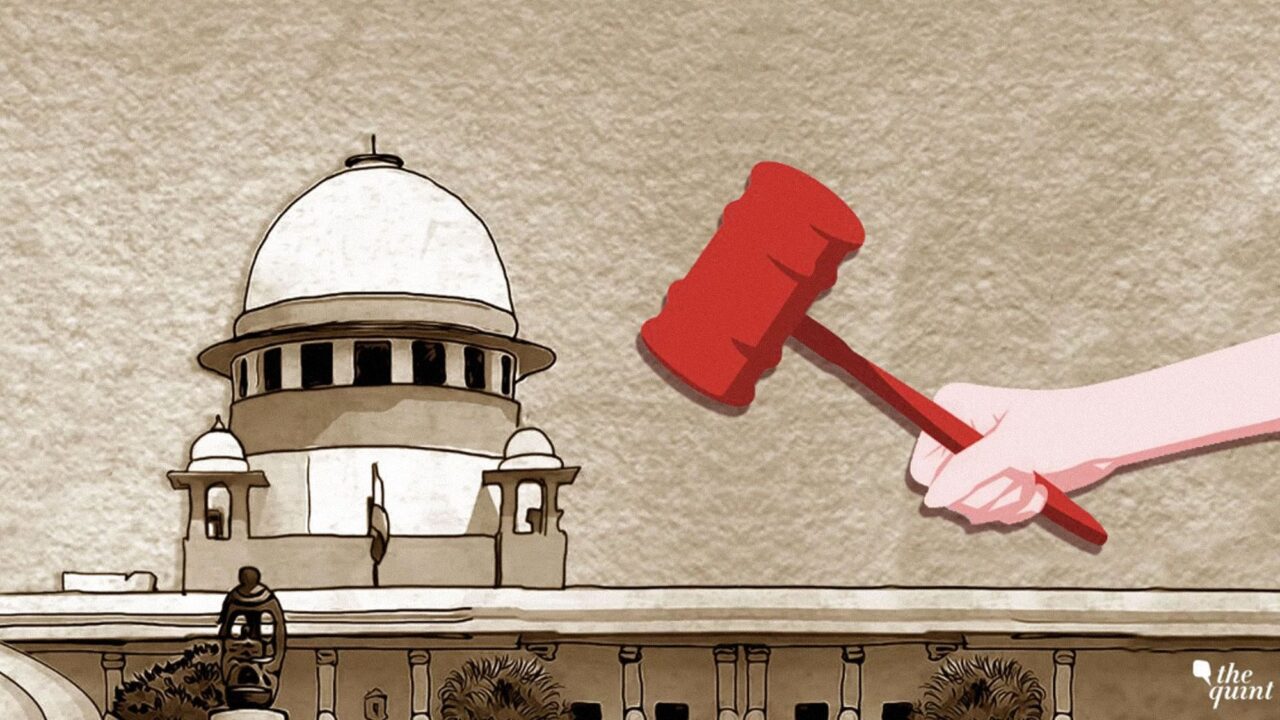The Supreme Court of India passed a landmark judgment on 28 September 2018 in which struck down Article 124A (NJAC) of the Indian constitution as unconstitutional. This was seen in the case of Supreme Court Advocates-on-record Association & Anr. vs. Union of India ((2016) 5 SCC 1) which was presided over by Justice Jagdish Singh Khehar, Justice J. Chelameswar, Justice Madan B. Lokur, Justice Kurian Joseph, Justice Adarsh Kumar Goel
FACTS OF THE CASE:
The system of judicial appointment and transfer that has evolved as a result of Supreme Court decisions, rather than an Act of Parliament or a provision of the Constitution. The Supreme Court collegium is led by the Chief Justice of India and consists of the court’s four most senior judges. A High Court collegium is led by the Chief Justice and four of the court’s most senior judges. Only after confirmation by the CJI and the Supreme Court collegium do names proposed for appointment by a High Court collegium reach the government. Judges of the higher judiciary are exclusively recruited through the collegium system — and the government only has a role after the collegium has settled on names. The only thing the government can do in the case of a lawyer who wants to be elevated to the position of judge on the High Court or Supreme Court is to request that the Intelligence Bureau (IB) conduct an investigation. It can also object to and request clarity on the collegium’s choices, but if the collegium repeats the same names, the government is obligated to install them as judges under Constitution Bench decisions.
The NDA administration established the Venkatachaliah Commission in 2000 to study the operation of the constitution. The commission recommended in its report the formation of a judicial commission comprised of:
(a) Chairman: The Chief Justice of India
(a) The Supreme Court’s two most senior judges: Member
(c) Union Law and Justice Minister: Member
(d) One eminent person selected by the President after consultation with the Chief Justice of India: Member.
This report was quickly followed by The Constitution (Ninety-Eighth Amendment) Bill, 2003, sponsored by the NDA administration, which planned to establish a National Judicial Commission based on the recommendations of this commission, however, the Lok Sabha was dissolved before this bill could be passed. In 2013, the UPA administration introduced The Constitution (120th Amendment) Bill, 2013, which established a six-member Judicial Appointments Commission comprised of three judicial and three non-judicial members, providing both equal say and primacy. In 2014, the NDA administration submitted the Constitutional (121st Amendment) Bill, which was later enacted by both houses of parliament, ratified by 16 state legislatures, and signed by the President; the NJAC Act, and the Constitutional Amendment Act.
Issues raised by court:
Whether the Constitution (Ninth Amendment) Act of 2014 and the National Judicial Appointments Commission Act of 2014 violate the “Principles of Separation of Powers”?
JUDGEMENT:
The Supreme Court ruled in favor of the petitioners by a vote of 4:1, holding that Article 124A is the most important provision of the 99th Amendment. If Article 124A is stricken, the entire amendment is null and void. The Court determined that Article 124A clauses a and b do not provide adequate representation to the judicial component of the National Judicial Appointments Commission, which is insufficient to preserve the primacy of the judiciary and thus violates the independence of the judiciary, which is an essential structure of the Constitution. Similarly, Articles 124A (c) and (d) are unconstitutional due to the inclusion of union ministers accountable to the legislation, which breaches the fundamental structure of the Constitution.
The Supreme Court ruled that the 99th Constitution Amendment Act of 2014, and so the National Judicial Appointment Commission Act of 2014, were unconstitutional and null and void. The mechanism of appointing judges to the Supreme Court, High Courts, and the appointment of Justices of India, as well as the transfer of judges, shall be carried out in accordance with the position prior to the 99th amendment. All five justices issued independent rulings, and Justice Chalemeswar maintained the amendment’s legality.
The court also denied the respondent’s request for a larger bench to reconsider the Second and Third Judge’s cases [(1993) 4 SCC 441, and (1998) 7 SCC 739, respectively]. The collegium system of judicial nomination and transfer has been reinstated.
“PRIME LEGAL is a full-service law firm that has won a National Award and has more than 20 years of experience in an array of sectors and practice areas. Prime legal fall into a category of best law firm, best lawyer, best family lawyer, best divorce lawyer, best divorce law firm, best criminal lawyer, best criminal law firm, best consumer lawyer, best civil lawyer.”
JUDGEMENT REVIEWED BY RAMASHESHAN P K.


